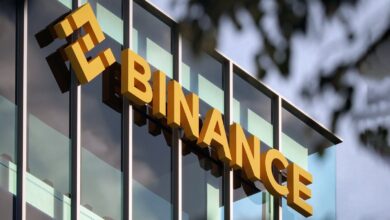UAE Central Bank looks into Green Finance Project on Blockchain

Central Bank of UAE studying the implementation of echeck on Blockchain.
The UAE Emirates Institute for Banking and Financial Studies ( EIBFS), held a webinar to discuss the benefits of Blockchain, as well as the concerns and risk considerations in integrating and deploying Blockchain. The webinar also discussed organizational readiness in adopting distributed ledger technologies and crypto assets.
The webinar drew the participation speakers including Hafid Oubrik, Director, Payment Systems Operations and Development, Banking Operations, Central Bank of the UAE, Dr Paul Sin, Partner, Consulting, Deloitte China and Deloitte’s Asia Pacific Blockchain Lab Leader, Hong Kong, Afzal Ibrahim, Vice President and Head of R&D, Future Lab, Group Digital, Emirates NBD, Sue McLean, Partner, Baker & McKenzie LLP, London, , and Dr Suyash Bhatt, Senior Faculty member at EIBFS.
Emirates NBD Afzal Ibrahim stated during the webinar, “Emirates NBD is working on Blockchain use cases in trade finance and in payments. We have done something called CBDC ( Central Bank Digital Currency), whole reconciliation part, coming again from payments, where parties know that the transaction has been done, real world example, Dubai Pay backed out by 10 entities in production. 13 million transactions have been recorded in last 18 months. Fourth case validate an asset, issued by X party and if you wanted to validate could be physical or digital, digitize entire checks as we have done in Emirates NBD with Check Chain. These are dominate use cases.”
Hafid Oubrik, Director, Payment Systems Operations and Development, Banking Operations, Central Bank of the UAE stated, ” Theoratically everything can go to blockchain but in practice do we want to take that move. It depends on use cases, and needs assessment before jumping into that conclusion and not doing it because it is a trend.One example outside banking is real-estate where we can exchange documents between different parties. Another one is green financing. Green financing initiatives are going on now with Financial Sustainability Board, and yes here blockchain can be implemented.”
Green Finance is any structure activity that has been created to ensure a better environmental outcome. According to the World Economic Forum the value of green bonds traded could soon hit $2.36 trillion and currently the European Central Bank is getting involved heavily in green finance.
He adds, “Central banks look into two aspects payment this is first priority however fintech as well is very important it is becoming more important for central bank how to ensure that fintech can be used in facilitating banking busines in every country example EKYC on blockchcain. We have seen this in DIFC as well DED with the technology so there are some use cases however payment more area of focus for central banks.”
Oubrik also discussed how regulators are choosing Blockchain platforms, he explains, ” We are about regulation to faciliate the technology. When you talk to chief technology offices while law is probably much more strict in terms of data sharing, so regulator needs to find balance. The regulation that should come is to find how two aspects can fit in withouth any issue. It is a challenge, but with proof of concepts that central banks are doing, solutions are being designed to sort these issues, while protecting interest of customers, with sound risk management policy.”
Oubrik also discusses the CBDC Aber project between KSA and UAE. He explains, ” We sought to explore whether DLT could enable cross border payment with a new dual approved digital currency. We would use it as an instrument of settlement not be made available to general public, wholesale CBDC. High level objectives to explore and experiement to understand DLT. Dual issuance of CBDC here we are talking about two authorities issuing unified CBDC and not each one alone. We have structured the project to incorporate three use cases, cross border, explore domestic settlement between commercial banks and Central bank, and three one commercial bank in UAE to another in KSA. Vision was to create CBDC for settlement of cross border payments between commercial banks, very important especially in GCC region, where there is substantial trade and movement of citizens resolving delays without need for escrow account in each country. The project confirmed that cross border dual digital currency was viable.”
Finally Oubrik talks about a new project called E-check. He explains, ” there will be no more phyical paper signed, or a digital representation of it. Example if I want to pay Afzal, I will connect to my bank create that echeck, enter his account number amount, after I have authenticated by bank. Then I will authorize push that payment echeck to beneficiary,who can either cash in immediately or put in vault. This kind of logic excludes compeltely physical document, there is no weight signtaute and this is a system that very few countries have done it. We have it in plan with an initial design of echeck functionality. We have presented to banks yet we have not shared details of that for implementation.”
In conclusion Jamal Al Jassmi, General Manager of EIBFS, stated, “The financial sector continues to evolve at a rapid pace in keeping with the dramatic advances in technology. In this context, EIBFS believes the theme of this webinar that discussed the implementation of Blockchain across the sector is both crucial and timely. Our panel presented some very interesting insights and highlighted the operational benefits that Blockchain can bring to the table. Moreover, they addressed the concerns of several attendees around this subject. We are confident that our attendees found the session a revelation and we look forward to continuing the dialogue on technology adoption with them.”





